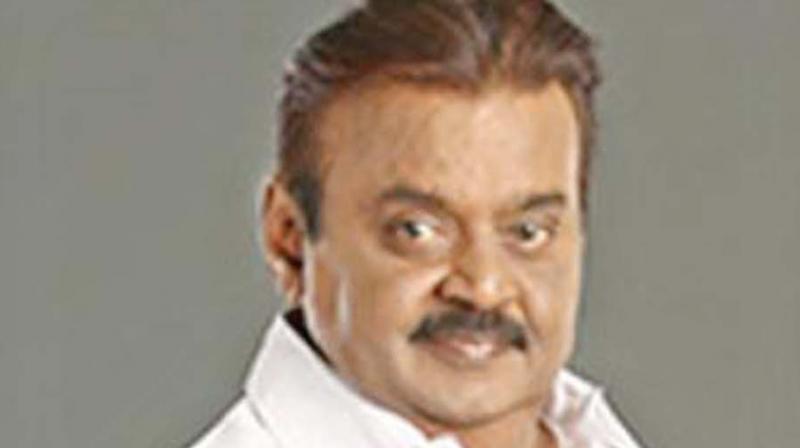DMDK may face LS polls with AIADMK -BJP and PMK combine
If the agreement is signed, the AIADMK may contest in 20 LS seats, BJP in five, PMK in seven and DMDK in five LS seats.

Chennai: After several rounds of negotiations with AIADMK -BJP and PMK combine as well as the DMK-led alliance in the State, the DMDK may have finally decided to face the Lok Sabha polls with AIADMK alliance while hoping to contest in 5 LS constituencies. The AIADMK has proposed to allot five seats in the alliance and an agreement will be signed between the AIADMK and DMDK on Saturday, sources said.
The AIADMK is leaving no stone unturned to win majority of seats in 21 Assembly by-polls, if by-election held, in the State and in the current political scenario even a small per cent of votes will matter most.
If the agreement is signed, the AIADMK may contest in 20 LS seats, BJP in five, PMK in seven and DMDK in five LS seats. The final seat sharing formula will be known shortly, the sources said.
The DMDK leader Vijaykanth decided to align with ruling party after DMK-led alliance reportedly offered not more than 5 seats. The DMK also insisted that the Congress give up two seats to make space for Vijayakant's party. As Congress refused to consider the request, the seat sharing agreement between DMK and DMDK failed. DMDK is the only party, which held seat sharing agreement with both the alliances led by the ruling and opposition parties in the State.
After Vijaykanth returned from US following medical treatment, several political leaders including, Union Minister and BJP leader Piyush Goyal, DMK president MK Stalin and former Congress president Su Thirunavukarasar called on him at his residence during the last fortnight.
In 2005, Vijayakanth formed the DMDK and in the 2006 Assembly Election the party won one seat - of the party leader, in Vriddachalam Assembly constituency. The party secured 8.38% votes in its maiden election. And in the 2009 Lok Sabha Elections, DMDK's vote share increased to 10.38 per cent. Its vote share declined drastically in the 2014 Lok Sabha Election down to 5.2 per cent and it further went down to 2.39 per cent in 2016 Assembly elections.

